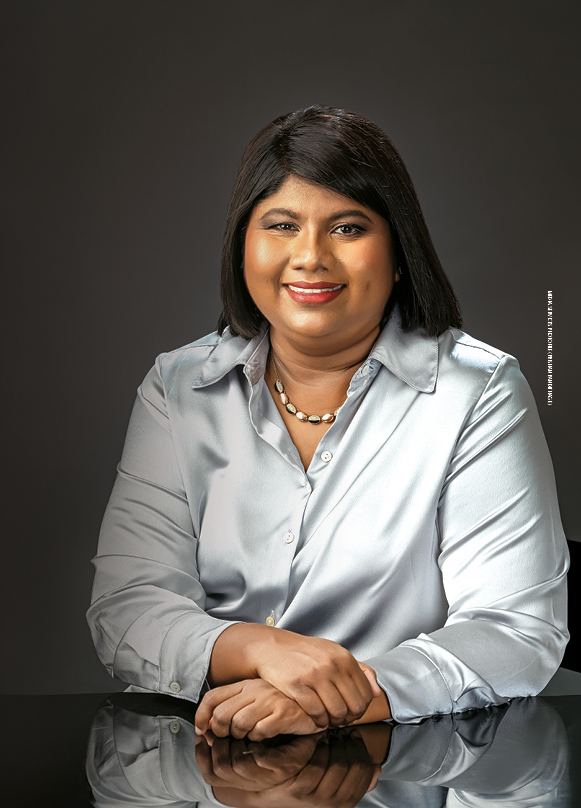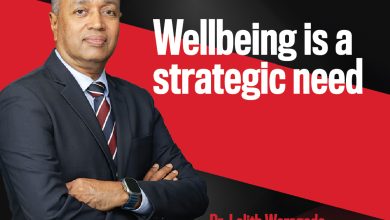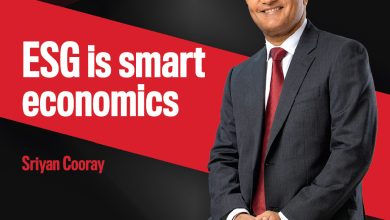CORPORATE CULTURE
Trust induced culture
Vindhya Jayasekera
“Culture must be visible not only in what leaders say but also in how decisions are made and success is recognised”

In an era of constant change, corporate culture serves as the compass that guides how organisations live out their values and make decisions that matter. According to Vindhya Jayasekera, corporate culture is best described as the personality or ambiance of a company.
“It is about how people work together and communicate, and what values guide their decisions. It comes from the lived experience of a company’s employees and is made up of a combination of shared values, beliefs and behaviour that influence how challenges are approached and decisions are made,” she elaborates.
At the heart of a strong corporate culture lie core values such as integrity, respect, collaboration and accountability.
Jayasekera says: “When these are in place, people feel supported, trusted and motivated to do their best. It creates alignment across the organisation, brings out the best in teams, and makes the workplace more enjoyable and productive.”
And she emphasises that a healthy culture rests on three foundational pillars: people, knowledge and process. “People bring the energy, mindset and purpose; knowledge fuels innovation and growth; and processes provides structure, fairness and accountability,” she explains.
DEFINING VALUES Culture, Jayasekera believes, can’t be mandated – it must be nurtured: “It needs to be shaped and reinforced, both from the top down and bottom up.”
Leadership plays a pivotal role in this process by consistently modelling the values and behaviour they want to see across the organisation. Culture must be visible not only in what leaders say but also in how decisions are made and success is recognised,” she posits.
Embedding these values into key touchpoints such as hiring, onboarding, performance reviews and feedback mechanisms is critical.
“Although open communication, recognition of positive behaviour and inclusive decision making are powerful tools, it’s equally important to create space for feedback so that people can feel heard and valued,” she says.
Culture mustn’t stop at the leadership level; it should cascade through middle management to reach every team and employee so that it becomes part of the everyday work environment.
BEHAVIOURAL INTEGRITY An authentic culture requires consistency between values and behaviour. As Jayasekera explains, “it’s easy to have values printed on a wall, yet credibility accrues when those values are clearly reflected in how decisions are made and people are treated.”
This alignment must happen at every level – from recruiting for cultural fit, and holding leadership accountable for creating systems that reward integrity, initiative and collaboration. And training and development should go beyond technical skills to include value based awareness.
Encouraging peer feedback and empowering employees to call out misalignments without fear are also key to embedding values in daily behaviour, she adds: “When people truly believe in the values rather than simply following them because they’re told to do so, the culture becomes natural, lasting and self-sustaining.”
According to Jayasekera, real culture lives in the small and consistent actions that reflect what an organisation stands for: “It’s not about being perfect all the time but intentionally living the values in big decisions and everyday moments.”
EARNING RESPECT In Jayasekera’s opinion, a strong and authentic corporate culture earns respect by aligning words with actions.
“Respect is earned when there is alignment between what an organisation says and what it does. This consistency builds trust, the foundation of any lasting relationship,” she affirms.
For employees, a culture that values inclusion, learning and contribution fosters pride and loyalty. When they see their company consistently living its values, it strengthens their sense of purpose and engagement.
Even among industry peers, a strong culture signals solid leadership and raises the bar for others. “Ultimately, culture isn’t simply internal; it’s reflected in how an organisation shows up in the world,” she says.
Jayasekera sums up: “When values are consistently upheld rather than merely stated, they leave a lasting impression. And over time, that consistency becomes the foundation of a company’s reputation.”





